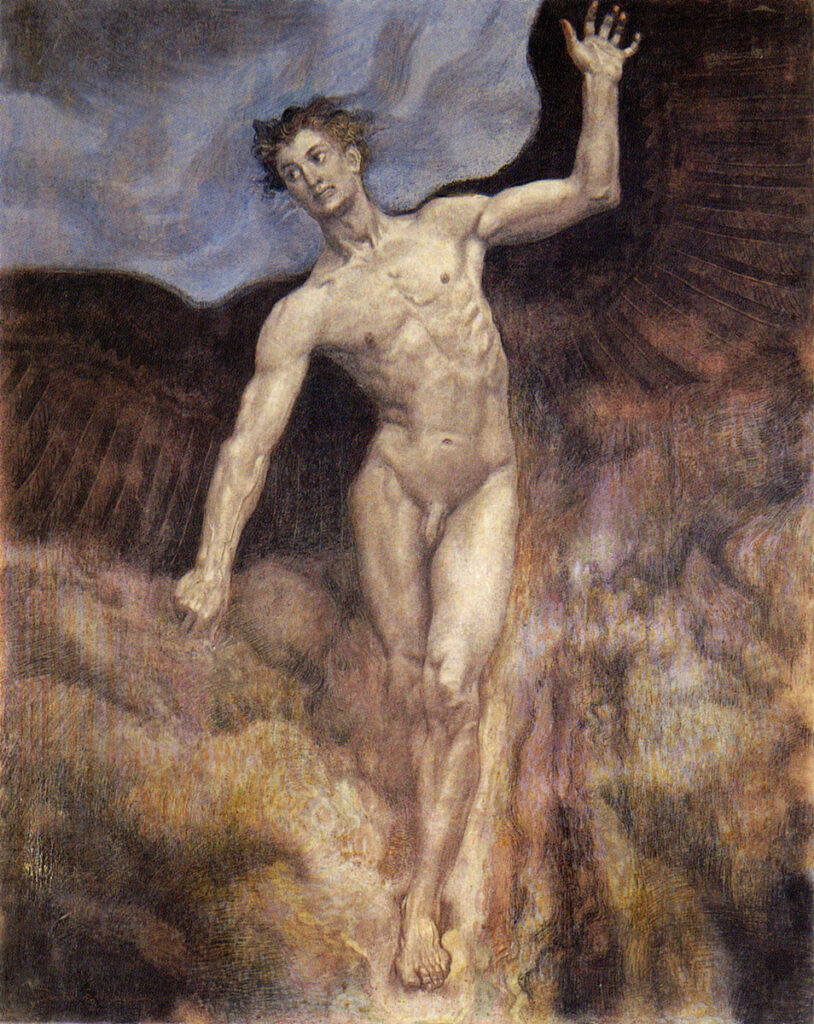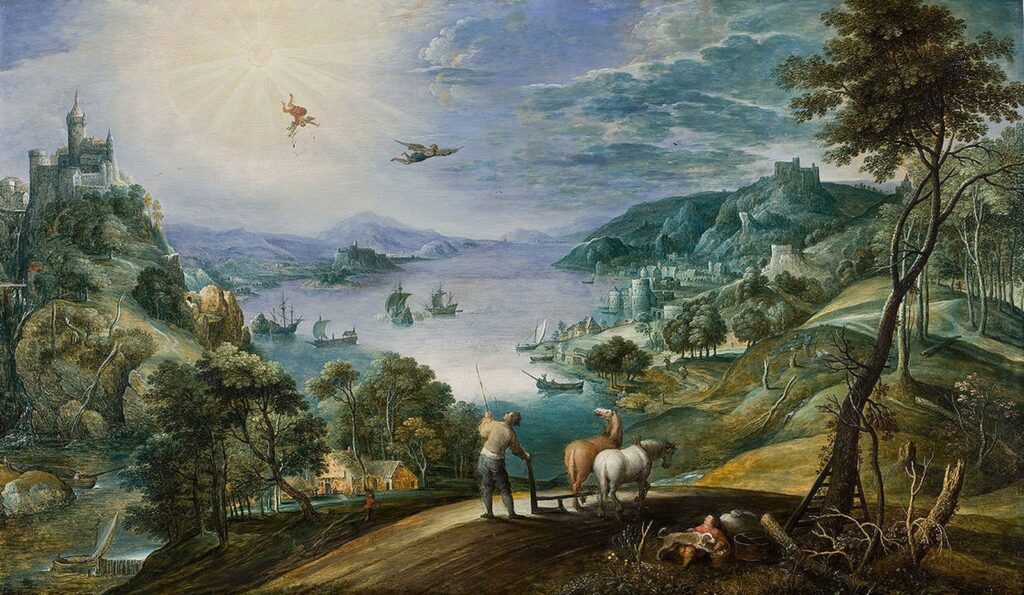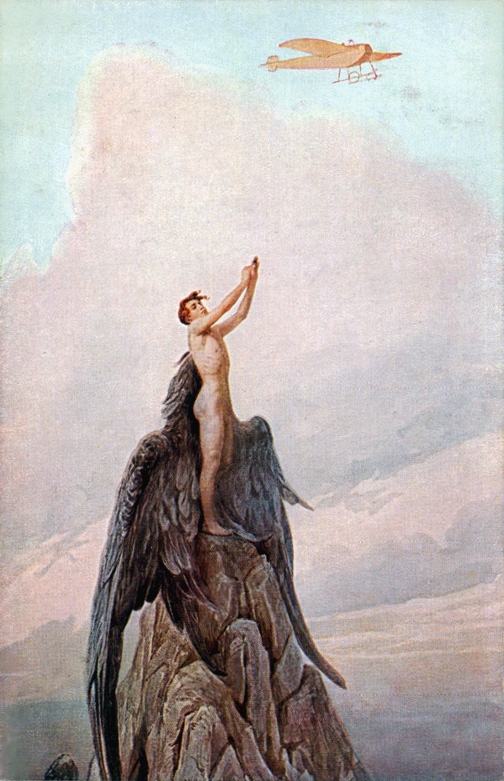Hubris is one of many Greek words that have carried into common modern use, but to the Ancient world, the concept of hybris was more than just misplaced confidence. In its earliest uses, the word referred to “the intentional use of violence to humiliate or degrade,” and was considered a crime in Archaic and Classical Greece.1 Hubris as a criminal act encompassed a variety of acts, from assault, to rape, to excessive drinking; the defining feature seeming to be excessive or insulting behavior.2 One example from previous articles on Cretan myth would be Pasiphaë and her daughter’s destructive lust. Essentially, it is the opposite of the Greek ideal of logos, meaning logic, reason, or restraint.3

In terms of ancient religion, and thus literature, the term hubris was applied to acts that insulted the gods, often through attempts at emulating their power; the actions of insolent mortals reaching above their station.4 In the context of Greek tragedy, hubris is often associated with hamartia, the “fatal flaw” or mistake made by a character that leads to their downfall. Oftentimes, the dooming act of hubris is to attempt to escape Moria, the Fates, which is the ultimate transgression against the will of the gods. Of course, to degrade the gods is the most severe mistake any mortal could make, and so such acts of hubris must inevitably be punished. 5
This concept lays at the heart of nearly all Greek tragedies, but there are few have stood the test of time like the story of Icarus. Son of the genius inventor Daedalus, poor Icarus has become the poster boy for mortal insolence. What is it about the young boy and his melting wings that has captured people’s imagination for centuries?

Much like the Labyrinth’s previous prisoner, the Minotaur, Icarus is locked away due to the fatal flaw of his parent. His father Daedalus’ status as a master inventor places him in a precarious position, toeing a thin line between genius and hubris. Daedalus facilitates the conception of the Minotaur by creating the lifelike wooden cow; perhaps not as egregious an act of divine emulation as the likes of Dr. Frankenstein, but he still takes on the role of divine creator. He also designs and constructs the Labyrinth in which the Minotaur is imprisoned, in order to hide the evidence of the Queen’s transgressions from King Minos. When Theseus succeeds in navigating the maze and slaying the creature, Daedalus is imprisoned in his own creation as punishment; not for his transgressions against the gods, but for those against his king.6
While much of the ancient literature involving Icarus from before the Augustan era is lost, Ovid’s 1st century CE Metamorphosis, drawing on more ancient sources, provides a brief account of his story. After Daedalus and his son are imprisoned, the inventor is quick to come up with his next clever scheme.7 He once again “alters the natural order of things,” emulating the powers of divine creation by affixing wings to himself and his son. Icarus watches his father work:
His son, Icarus, stood next to him, and, not realizing that he was handling things that would endanger him, caught laughingly at the down that blew in the passing breeze, and softened the yellow bees’-wax with his thumb, and, in his play, hindered his father’s marvelous work.
Ovid (trans. Kline)
Daedalus warns the young boy to follow the path he shows him, and not to fly too close to the sun, all the while weeping as he goes about his work. It’s as if he knows his warnings are futile, and it is inevitable that Icarus will be tempted by the warmth and freedom of flight. The Fates have already made their decision, and in classic tragic style, the boy is doomed before his feet even leave the ground. Daedalus gives one final, “never to be repeated,” kiss to his son before the two take to the sky. His fears are proven right, and Icarus cannot resist the temptation:

Drawn by for the heavens, [he] soared higher. His nearness to the devouring sun softened the fragrant wax that held the wings… Even as his mouth was crying his father’s name, it vanished into the dark blue sea… The unhappy father, no longer a father… caught sight of the feathers on the waves, and cursed his inventions.
Ovid (trans. Kline)
Though the surviving ancient literary sources are a bit sparse, Icarus became a popular source of inspiration for later writers, including Chaucer, Marlowe, and Shakespeare. More modern poets, such as Anne Sexton and Jack Gilbert, have also famously mused on the character. In the cheekily titled “To a Friend Whose Work Has Come to Triumph,”8 Sexton writes:
Consider Icarus, pasting those sticky wings on… Feel the fire at his neck and see how casually / he glances up and is caught, wondrously tunneling / into that hot eye. / Who cares that he fell back into the sea? / See him acclaiming the sun and come plunging down / while his sensible daddy goes straight into town.
Anne Sexton
Gilbert takes a slightly different perspective on Icarus’ fatal hubris in his poem “Failing and Flying,” writing: “Everyone forgets that Icarus also flew… / I believe Icarus was not failing as he fell / but just coming to the end of his triumph.” Gilbert is not alone in his sympathetic perspective on the tragic figure. The tale of Icarus has given poets something to grapple with for centuries, including OWU’s own Emily McCullough. You can read her poem inspired by the myth of Icarus here: https://sites.owu.edu/trident/2024/05/03/wax-wings/
- Britannica, T. Editors of Encyclopaedia (2024, January 5). Hubris. Encyclopedia Britannica. https://www.britannica.com/topic/hubris ↩︎
- Cohen, David. “Sexuality, Violence, and the Athenian Law of ‘Hubris.’” Greece & Rome 38, no. 2 (1991): 171–88. http://www.jstor.org/stable/642956. ↩︎
- Roudinesco, Elisabeth. “History of a Concept: Hubris, the Overindulgence in Excess.” Le Monde.fr, May 3, 2022. https://www.lemonde.fr/en/opinion/article/2022/05/03/history-of-a-concept-hubris-the-overindulgence-in-excess_5982346_23.html. ↩︎
- Douglas L. Cairns. “Hybris, Dishonour, and Thinking Big.” The Journal of Hellenic Studies 116 (1996): 1–32. https://doi.org/10.2307/631953. ↩︎
- Farzand, Mariyam. (2023). Title: Shakespearean Tragedy: An Exploration of Hamartia, Hubris, and Catharsis. ↩︎
- Britannica, T. Editors of Encyclopaedia. “Daedalus.” Encyclopedia Britannica, February 9, 2024. https://www.britannica.com/topic/Daedalus-Greek-mythology. ↩︎
- Ovid, Metamorphosis (trans. Kline). 8.183-235. 1st century CE. ↩︎
- Sexton, Anne. “To a Friend Whose Work Has Come to Triumph.” 1960. . ↩︎
Featured Image: Daedalus and Icarus statue by Antonio Canova, photo courtesy of SottoAlLibro, and licensed under the Creative Commons Attribution-Share Alike 4.0 International license.
Images: Ikarus by Sascha Schneider, 1906, this work is in the public domain.
Landscape with a Farmer Plowing and the Fall of Icarus by Marten Ryckaert, c. 1620-1630, this work is in the public domain.
Dream of Icarus by Sergei Solomko, c. 1920, this work is in the public domain.